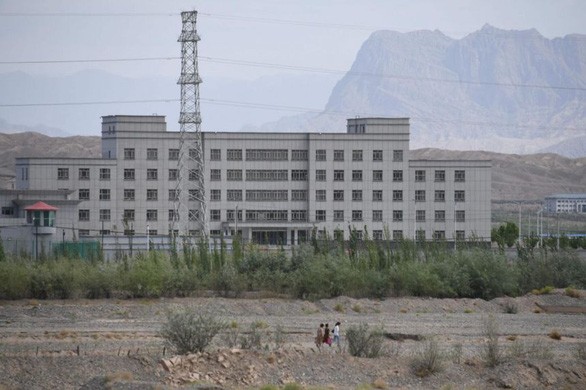(VOVWORLD) -A series of tough measures taken by both sides has pushed the relationship between the US, the EU and China to the lowest level in decades.
 A vocational training center as called by the Chinese Government in Xinjiang - Photo: AFP A vocational training center as called by the Chinese Government in Xinjiang - Photo: AFP
|
The downward trend of relations between the West and China was predictable. Since Joe Biden became President of the United States, he has been outspoken about his tough stance toward China and has sought to attract European allies to join efforts to confront Beijing. The two sides are now caught in a tense confrontational spiral of retaliatory sanctions.
Tit for tat punishment
On Thursday, the EU and the UK announced sanctions against individuals and organizations in China for alleged human rights violations in Xinjiang. The EU will impose travel bans and freeze the assets of four Chinese officials in the Xinjiang region, and a construction company in Xinjiang. This is the first time since 1989 that Europe has imposed sanctions on China for human rights violations. Just a few hours after the EU's announcement, British Foreign Secretary Dominic Raab announced the UK sanctions against China.
China swiftly responded with the announcement of penalties against 10 individuals and 4 organizations in the EU, including a number of MPs, the Human Rights Subcommittee of the European Parliament, the Politics and Security Commission of the European Council, the Mercator Institute for China Studies in Berlin, and the Democratic Union, a Danish non-governmental organization. According to analysts, China's retaliation is far more severe than the EU sanctions.
Earlier, China condemned the sanctions announced by US Secretary of State Antony Blinken on March 17 against Chinese officials on the mainland and in Hong Kong for changing the electoral system in the Hong Kong Special Administrative Region, and promised appropriate retaliation. This development and the less-than-productive US-China high-level dialogue in Alaska on Thursday and Friday, have pushed US-China relations ever closer to a crisis.
Messages and prospects
Analysts say Beijing's retaliation against the EU and furious response to Washington carries the very clear message that China will not back down, but will respond vigorously, even disproportionately, to any actions by the US or the EU.
This may prompt both the US and the EU to reassess their strategy toward China. But concession or de-escalation is considered by analysts as unlikely for many reasons. The most important reason is to save face, both internally and externally. The US and the EU will likely continue to be tough with China, and China will almost certainly respond fiercely.
The prospect of reconciliation between the West and China, at least in the short term, is looking unrealistic. The trade war, strategic competition, and confrontation between the US and China, will not cool down anytime soon. Meanwhile, the new Comprehensive Agreement on Investment reached by the EU and China late last year, which was considered a great cooperative achievement, is now at risk of failing to be approved by the European Parliament.